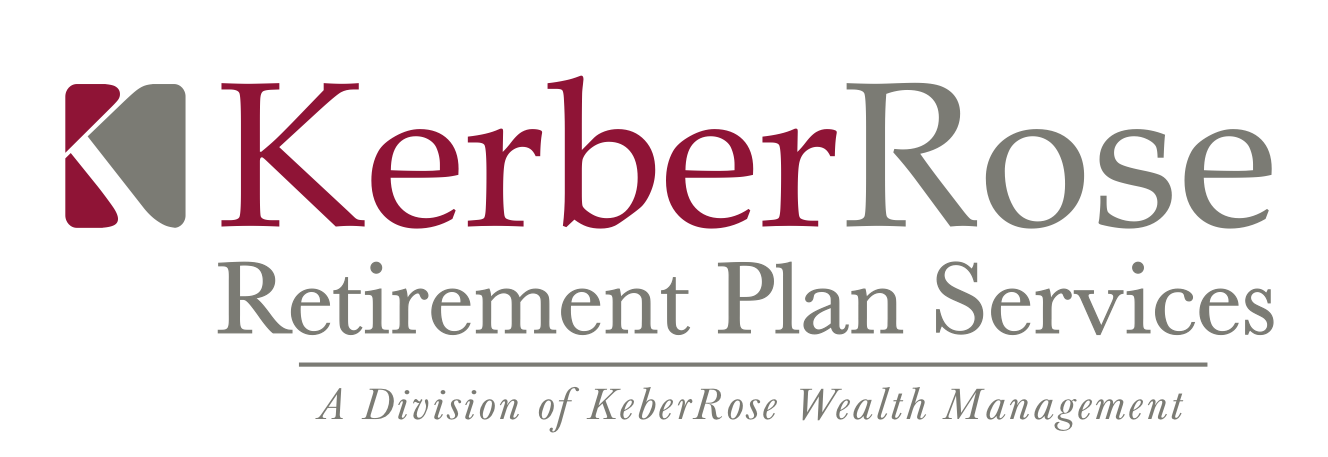The Latest News and Updates from KerberRose
Resources
Three Tax Tips that Can Help as You Approach or Begin Retirement
Retirement is a whole new phase of life. You’ll experience many new things, and you’ll leave others behind – but what you won’t avoid is taxes. If you’ve followed the advice of retirement plan consultants, you’re probably saving in tax-advantaged retirement accounts. These types of accounts defer taxes until withdrawal, and you’ll probably withdraw funds in retirement. Also, you may have to pay taxes on other types of income - Social Security, pension payments, or salary from a part-time job. With that in mind, it makes sense for you to develop a retirement income strategy.
Retirement Plan Committee Activities
A retirement plan committee consists of co-fiduciaries who are responsible for all plan management activities that have been delegated to them by their plan’s named fiduciary. ERISA states that the committee must act exclusively in the best interests of plan participants, beneficiaries and alternate payees as they manage their plan’s administrative and management functions.
401(k) Plan Tax Credit Summary
Eligible employers may be able to claim a tax credit of up to $5,000, for three years, for the ordinary and necessary costs of starting a SEP, SIMPLE IRA or qualified plan (like a 401(k) plan.) A tax credit reduces the amount of taxes you may owe on a dollar-for-dollar basis.
Your Investment Policy Statement is Important to Us
The ERISA team takes the best of the ideas and incorporates them into a revised IPS template. In essence the template IPS is the product of hundreds of ERISA attorneys whose input is all taken into consideration.
Tax Saver’s Credit Reminder
You may be eligible for a valuable incentive, which could reduce your federal income tax liability, for contributing to your company’s 401(k) or 403(b) plan. If you qualify, you may receive a Tax Saver’s Credit of up to $1,000 ($2,000 for married couples filing jointly) if you made eligible contributions to an employer sponsored retirement savings plan.
QDIA.... Why is it important?
The qualified default investment alternative (“QDIA”) is arguably the most important investment in a plan’s investment menu. By far the most often selected QDIA investment is a target date fund (“TDF”). TDFs are typically the only investment selection that offers unitized professionally managed portfolios that reflect the participants’ time horizon today and as they go to and through retirement.
Excessive Fee Litigation: The Best Defense is Compliance
Excessive fee litigation is increasing at a steady pace and all signs are it will continue to increase. The positive side of this situation is that we now have more caselaw to consider as we work toward compliance in creating a “best defense
The Case for Investment Refresh
Investment refresh is an optional extension to automatic enrollment whereby participants would be notified that, as of a certain date, their current investment allocation will be transferred to the plan’s qualified default investment alternative (“QDIA”) investment. The QDIA is frequently an age/risk appropriate target date fund (“TDF”). Any participant may opt out of this action prior to or at any time after the transfer date.
Don’t Skip the Match
This month’s employee memo encourages employees to conduct a regular examination of their retirement plan to determine whether any changes need to be made. Download the memo from your Fiduciary Briefcase at fiduciarybriefcase.com.
Common Fiduciary Errors
An ounce of prevention is worth a pound of cure. This saying is universal, and certainly applies to fiduciary responsibility. Beginning the year with an eye towards avoiding some of the most common errors makes sense. Most fiduciary errors are unintentional or even well meaning. Here are some examples.
Private Equity Investments in Defined Contribution (DC) Plans
Private equity funds invest in privately held companies whose stock is not traded on public exchanges. Private equity fund managers expect to increase the value of their investments by providing capital and acumen for the purpose of improving performance/value of these companies.
Former Employees with Plan Assets are Still Plan Participants
Plan Sponsors should understand that terminated employees who left their account balance in your plan, are still considered participants under ERISA. As such, they have the same rights as current employees. They cannot contribute to their account under the plan but otherwise they have the same ERISA protected rights as plan participants.












